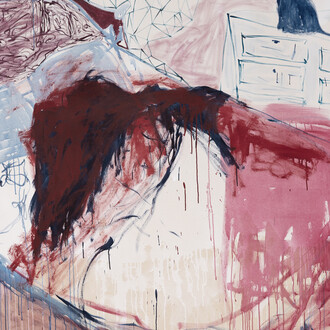Although a major feature of the Museum is the varied display of vehicles, there is an additional emphasis on the smaller but no less interesting items associated with road transport.
These have been assembled and form the Museum’s Object Collection. Not all of the exhibits are on continuous display as the collection consists of far more material than there is space to display.
This includes foundation stones and other commemorative stonework rescued from bus and tram garages, works and offices which have often been demolished.
Much could be written on the subject of badges and buttons, with each operator having their own design, often personalised in later years (“I’m Ken your driver)”, plus of course the official Driver or Conductor badge issued by the Traffic Commissioners. Staff could also indicate periods of long service, or Union membership, with appropriate badges.
We have a large collection of bus stop plates from all the former municipal operators which became SELNEC in 1969, together with examples from this period right up to the present day. Our collection of signs includes plaques commemorating the opening of buildings, memorials to staff lost in the two world wars, external building signage from bus garages, stations and offices, as well as internal staff notices.
To inform the intending passenger where a bus was going, buses were fitted with a set of long linen, paper or plastic destination ‘blinds’ at the front in a special glass case and illuminated from behind at night. Included are destination screens and the winding apparatus, linen, paper and plastic route or number blinds, metal stencils showing a route or its number, route boards from the sides of vehicles, and even the equipment used to print destination blinds.
Engineering equipment refers to machinery and equipment used in vehicle maintenance, for painting, tyre fitting, MOT testing, lifting and handling vehicles or spare parts, safety and security.
Office and works equipment covers all the typical objects found in an office – typewriters, telephones, mail boxes, filing cabinets, etc., plus more modern objects such as radios, televisions, copiers and so on, and the smaller items such as pens, pencils, inkwells, etc.
Street furniture describes all the different objects seen at the roadside – bus stops and posts, road signs, traffic lights, bollards, the telephone box and posting box, electrical or telephone junction boxes, notice boards, timetable cases, promotional boards, and so on.
Ticketing equipment covers ticket machines, ticket racks, punches, fare boxes, cash counting machines, and so on. The Museum has examples of machines from Almex, Bell Punch, Setright, TIM, Ultimate, Verometer, Wayfarer, and Willebrew, with probably the oldest being a Kaye’s patent fare box. Over the years, the changes in company ownership means that a machine badged as one company may actually be manufactured by another. Modern electronic machines are just as significant as those from the 19th century in telling the story. We have machines from all the pre-SELNEC operators, except Ramsbottom, and from all the more recent major local operators. Racks for holding packs of punch tickets, and the Bell and Williamson punches, are also held. Fare boxes for one person operation, or self-service coin operated machines, such as Autoslot, Johnsons, Sabloc or Videmat are included in the collection, in some cases fitted to the buses on which they would have been carried when in service. We also have a large ticket printer which produced pre-printed tickets.
Vehicle fittings describes those items which although part of the bus, are often separated from it for some reason! Vehicle manufacturers’ or bodybuilders’ plates, often saved from scrapped vehicles, record company names, often in ornate fashion, whilst parts such as seat frames, cushions, examples of moquette or leather, handles, mirrors, lamps, fire extinguishers and so on add to the overall picture. From the tramway and trolleybus periods, there are examples of overhead line equipment, electrical parts, engraved window glasses from tramcars, sand boxes, bamboo poles to retrieve errant trolley poles, and control equipment.
The Museum has a remarkable range of clothing – jackets (summer and winter), trousers, (including shorts), skirts, shirts or blouses, ties, scarves, cravats, caps and hats, overcoats, raincoats, body warmers, anoraks, and even smocks and gaiters from the earliest periods of public transport, and covering all grades of staff – drivers, conductors, conductresses, inspectors, timekeepers, etc. There is also clothing for personnel other than platform staff, such as overalls, safety wear, and footwear. Although the predominant colour is dark blue or black, other colours are represented – the brown of Greater Manchester Transport, green from SHMD, grey and red summer uniforms from LUT, cream or white for dustcoats or light jackets. Some of the earlier uniforms are particularly ornate, with company or corporation insignia, buttons and rank badges, and even into GMT days, the quality of uniform reflected the grade of the wearer. Leather cash bags could have been included with ticketing equipment above, but are an essential part of the conductor’s kit, whilst up until the 1970s, few crews went on the road without an enamel brew can to hold ever strengthening tea.














